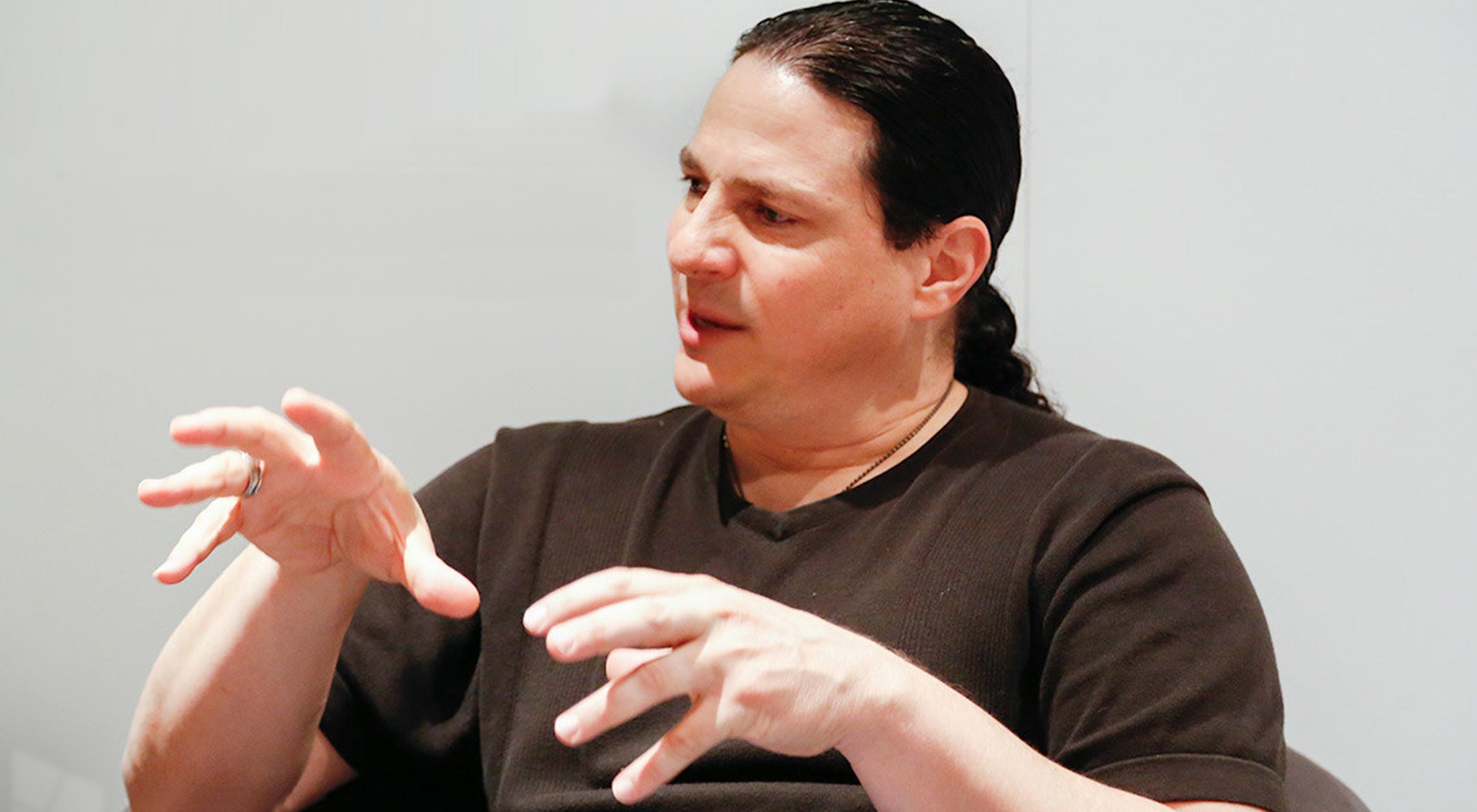“…though we often soliloquize about writing being a solitary existence with coveted ideas held closer to the chest than Bluebeard’s key to his chamber of torture and death, writing should never be a purely individual undertaking.”
While wrapping up a perfectly productive Friday, I led my students through a discussion of Charlie Fish’s fabulously wicked short story, “Death by Scrabble.” We were exploring conflict, its relation to tight plot development and the vicious need for stake raising in fiction of all kinds, not just those stories teeming with vampires. I was just about to close the conversation when one of my students raised his hand and pointed out a connection in the story that I, after four years and twenty four class periods of teaching it, had never recognized. It was subtle, it was pivotal, it was brilliant, and I had become too familiar with the overall story, and the story’s punch line, to see it.
It is entirely possible to get too close to things: the novel you’ve been writing for ten years, the short story that you’ve rewritten over and over a thousand times that still just doesn’t seem quite right, a lion at the zoo…
The point is, while we often soliloquize about writing being a solitary existence with coveted ideas held closer to the chest than Bluebeard’s key to his chamber of torture and death, writing should never be a purely individual undertaking. If you refuse to let, at the very least, your intended reader skim through your opus and offer the most general of feedback, you do yourself a terrible disservice.
We all can benefit from fresh eyes and a fresh perspective of our work. You may find that the technical name of a rare gun in the hand of your protagonist pulls your reader from your story and sends them on a mad Google search where your extensive research pounded that term into your subconscious so often that you had no doubt it was as common an item in modern households as a toaster. Sometimes, it’s refreshing to find that you’re wrong.
If we’re honest with ourselves, does this emergence from the solitude of creation stifle and stem the flow of those creative juices? Or does it, instead, offer up a new dark alley that we didn’t see between the massive structures we erected in our mind’s vision of the work. An alley that can be explored, fleshed out, and may bring new surprises as we descend back into our solitary cell of creation.
Step away from your work, place it in hands that you trust, but place it in hands that are not afraid to tell you when there’s something missing, or something wrong altogether (Ahhhh! Talking hands!!). In today’s world of social groups and social media, there’s no limit to the amount of people willing to help if you have the courage to seek another’s foray into your twisted or fantastical imagination. Join a writer’s group, start a blog, ask a friend, a family member, a teacher or a mentor. Check out the following link for a list of writers’ groups near you: Squidoo.com List of Local Writers Associations The list is delineated by state making it easier to find your friendly neighborhood wordsmiths.
Here’s a novel idea: Be a guest writer on the Roundtable Podcast and let us dig into whatever shallow grave your thoughts are buried in. (Okay, a bit shameful, that.)
The outcome is the same as the student who saw in that story a detail that I had skipped over time and time again because I thought I knew it and had stopped looking. Discourse, conversation, workshops, even reading your piece into a voice recorder and listening to it the next day, can open you up to that one shift, that one detail that some blogger, someday, might call subtle, pivotal, and brilliant.










I think finding an audience is the best thing any writer can do.
Getting a beta (or alpha) reader, somebody you can work with to hammer out ideas, a sounding board of development is something every successful writer I know does.
Over the years I’ve developed a collection of them who range from the “can you read this chapter (again) and see if it works?” to “here’s what I think is the final draft. what do you think?” to some crowdsourced proof-reading” folks who volunteer to proof read advanced copies just so they can be part of the in-crowd.
Reading aloud is a great way to get a new perspective on your story. If you’ve got to take a breath in the middle of your scintillating dialog because the sentences are too long for any mortal being to utter without having to take a breath before they can finish the thought, that’s probably a sign you need to look at that bit.
Me? I read aloud, record it, and then share it in serialized form with about 20,000 of my closest fans.
It’s amazing what that’ll do for cleaning up your writing.
I’m looking forward to playing in the Round Table sandbox.
I think you’re absolutely right about finding an audience and utilizing that source, not only for affirmation, but also for constructive feedback. I am in a position like many others, I believe, where I’ve been writing for a long time and have not taken the publishing aspect seriously enough to have anything to show for it. I send pieces out here and there, always to the top markets who are very gracious in their rejections, and then the submissions go back in the drawer for another ten months until I get the inspiration to revise and try again. Rarely, however, do I send the same piece to multiple markets.
So I sit here with nothing published beyond an article I wrote in 2007, feeling as if my work is not ready for an audience. Maybe that is the case, or perhaps I just need to start with the audience and build up to the publication.
I like what you say about allowing your audience to be, in essence, your writer’s group. Giving people who share an interest in your work the opportunity to be a part of the process rather than just pushing them off and opening access only to the end result seems less limiting and may help to give a context to the piece that it might otherwise be lacking.
Thanks for your perspective, Nathan. We are excited to have you play in the Roundtable sandbox with us!
But how do you get over the fear that someone will kick your sandcastle down? Isn’t it just safer to keep it in that shoebox under the bed?
I don’t know that you ever do get over the fear. But if you feel that the sandcastle is worth building, then it certainly is worth sharing. And if someone comes along and kicks it down because he finds fault with it, someone else will stop and help you rebuild it and it’s the second person that you built it for in the first place. “You can’t please all the people all the time,” right? So you have to focus on those who do gain pleasure from your work, and strive to continue to please them. But if you keep it locked away in a shoebox under the bed forever, you will never gain that wealth of enthusiasm and spirit from those who gain something in return from what you have to offer.
Hell, yes! Criticism stings. But if I don’t put my work out there, I’ll never meet my audience, and I can ignore the people who were never meant to like my stuff in the first place. Now if nobody likes what I put out, then it’s time to rethink the millions of hours spent. But even an audience of one is validation enough for me.
Thanks, mom! ; )
I actually put mine out figuring nobody would like ’em and I’d disappear into obscurity with nothing more permanently damaged than a small ding in my ego.
Imagine my shock when people started writing to me and demanding MORE!
I think part of it is that you have to find the place you’re comfortable with. For me, I know people like a good story. I told a story I thought was good and a few people agreed. From there it was just seeing if I could do it again.
So far, so good.
If someone kicks your sandcastle down, you’ll build the next one better. Soon you’ll find that you’re not building sandcastles, but something stronger and more durable.
If you keep it in the shoebox, all you will ever make are sandcastles, which will fall apart at the slightest touch.
Doc
Okay Brion, You can’t allude to a fascinating discovery in “Death by Scrabble” and not tell what your brilliant student noticed. I just got done reading the story with a class. Unfortunately, my students were not as observant as yours.
On another note, great work you guys are doing here!
Jeremy! Sorry, was that too much of a tease? It had to do with the fact that he swallows the letter B. I can’t say anymore here, because they might be watching. Oh, and I’m sure your students got just as much out of it as mine. As I say, ONE of my students…
Thanks for the encouragement. This whole thing is really becoming something amazing. Hope all is well up there!